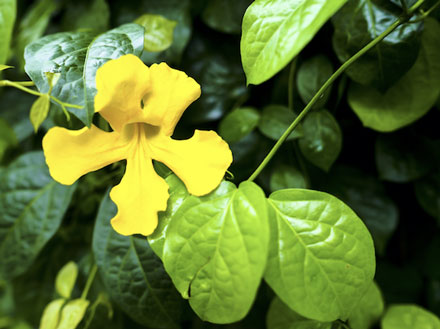
In a small clinical trial Cats Claw was shown to decrease pain in patients with rheumatoid arthritis as well as osteoarthritis of the knee. Cats claw is commonly used in South America and more recently in Western nations as an anti-inflammatory agent in treating arthritis and gastrointestinal inflammation.

Cats claw is commonly used in South America and more recently in Western nations as an anti-inflammatory agent in treating arthritis and gastrointestinal inflammation.
Is cats claw an anti inflammatory. Anti-inflammatory and antioxidant activities of cats claw Uncaria tomentosa and Uncaria guianensis are independent of their alkaloid content. Cats claw is an herbal medicine from the Amazon that is used widely to treat inflammatory disorders. A potent antioxidant and anti-inflammatory botanical Cats Claw is used to treat joint problems that occur with osteoarthritis and rheumatoid arthritis.
In a small clinical trial Cats Claw was shown to decrease pain in patients with rheumatoid arthritis as well as osteoarthritis of the knee. The medicinal benefits of Cats Claw come from chemicals called pentacyclic oxindole. Cats claw is commonly used in South America and more recently in Western nations as an anti-inflammatory agent in treating arthritis and gastrointestinal inflammation.
Antiinflammatory actions of cats claw. The role of NF-kappaB. Cats claw protects cells against oxidative stress and negated the activation of NF-kappaB.
These studies provide a mechanistic evidence for the widely held belief that cats claw is an effective anti-inflammatory agent. Cats Claw as an Anti-inflammatory and Immune Enhancing Agent in Lyme Disease. A derivative from the bark of a woody vine growing in the Peruvian Amazon highlands.
Cats claw is one of the most versatile of all Amazon forest natural medicines known. Known to the tribal people as Uno De Gata it is a complex of a wide range of tannins flavonoids. Anyone ever try a natural immune system stimulant like cats claw uncaria tomentosa which is also supposed to reduce inflammation and cleanse the bowel as a potential alternative to prednisone or other drugs or know of any studies done on it.
Ive researched it online a little but would not want to try it and risk making my condition worse. Cats claw is an effective treatment for osteoarthritis. The species U guianensis and U tomentosa are equiactive.
They are effective antioxidants but their anti-inflammatory properties may result from their ability to inhibit TNFalpha and to a lesser extent PGE2 production. Cats claw is an effective treatment for osteoarthritis. Cats claw is anti-inflammatory.
It may inhibit the growth and activity of plaque in the brain which is why studies about cats claw and the brain are so interesting. Not every type of cats claw is the same or has the same health benefits for the brain. Studies of cats claw as a treatment for hypertension indicate that it may be helpful in naturally reducing high blood pressure.
In Traditional Chinese Medicine a variety of cats claw Uncaria rhynchophylla has been used to lower blood pressure as well as. The Cats Claw is a miracle cure from the jungle. Its antibacterial antifungal and antiviral effects have proven particularly effective in combating persistent infections such as Lyme disease Candida Eppstein-Barr glandular fever herpes bladder infections hepatitis prostatitis gastritis and Crohns disease.
Cats claw protects cells against oxidative stress and negated the activation of NFκB. These studies provide a mechanistic evidence for the widely held belief that cats claw is an effective antiinflammatory agent. The bark and root have been used for centuries in South America as a traditional medicine for many conditions such as inflammation cancer and infections.
Cats claw supplements can be. Cats Claw - Natures Anti-inflammatory. Cats claw is used traditionally in Peruvian medicine especially for the treatment of wounds stomach problems cancer arthritis and more.
Today is one of the best selling herbs in the USA and since the 1970s many studies and research have been carried out by scientists in Peru Germany England. Two widely used anti-inflammatory agents salicy-lates and glucorticoids are both inhibitors of NF-kB4 Model explicating treatment In order to understand the how cats claw influ- ences the pathophysiology of osteoarthritis Fig. 1 is a diagram displaying cell injury and the points at which cats claw impacts the disease.
This figure is based upon an understanding of cell injury which. Scientists have confirmed that cats claw imparts powerful antioxidant and anti-inflammatory effects and may thus help manage illnesses associated with oxidative stress and inflammation. Cats claw helps protect joint cartilage and has displayed efficacy in relieving joint pain indicating it may be helpful for people suffering from arthritis.
Cats Claw also prevented immune cells from becoming infected with the dengue virus and decreased inflammatory cytokines TNF-alpha and IFN-alpha. Even though The results are promising two clinical trials and a few creatures and cell-based research cannot be regarded as sufficient evidence to support using the cats claw for viral ailments. This is where Cats Claw comes to the rescue.
Researchers documented the antioxidative and anti-inflammatory properties of cats claw Uncaria tomentosa UT and Uncaria guianensis UG in a 2002 study. The results indicated that while both species of cats claw provide effective antioxidant and anti-inflammatory activities U. Guianensis is more potent1.